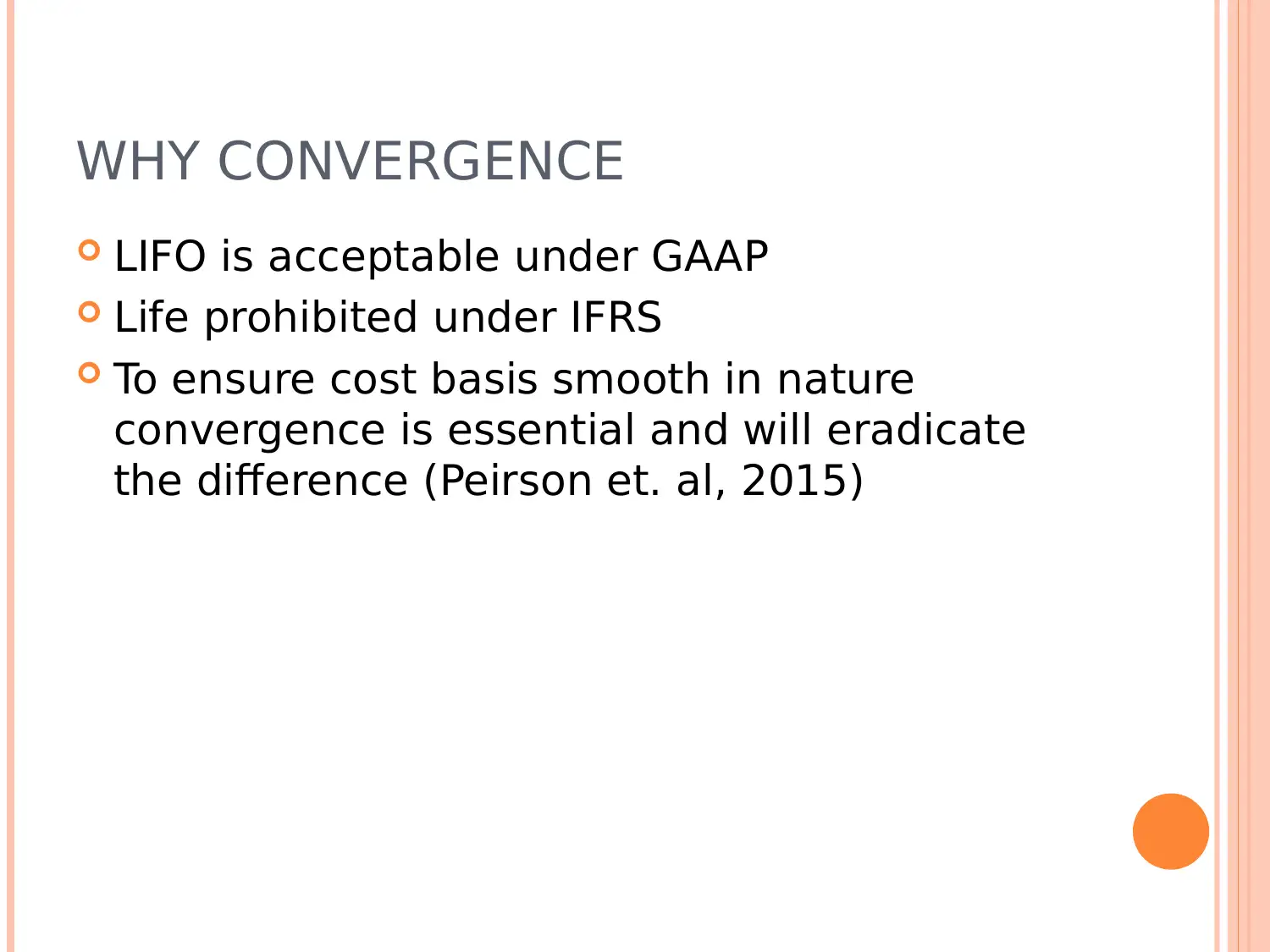Accounting Theory Presentation on US GAAP, IFRS, and Convergence
VerifiedAdded on 2023/04/21
|17
|980
|449
Presentation
AI Summary
This presentation provides an in-depth analysis of accounting theory, focusing on the differences and convergence between US GAAP and IFRS. It examines key areas such as revenue recognition, inventory valuation, and leases, highlighting the implications of these standards on financial reporting. The presentation explores the complexities of US GAAP and the flexibility offered by IFRS, emphasizing the benefits and challenges of convergence. It discusses the feasibility of convergence, considering factors such as the sharing of fundamental principles and the reluctance of some bodies to fully embrace it, while also acknowledging the support for convergence from other institutions. The conclusion underscores the importance of reliable and meaningful accounting standards, emphasizing how convergence can improve cost budgeting and revenue assessment for managers.
1 out of 17


















![[object Object]](/_next/static/media/star-bottom.7253800d.svg)